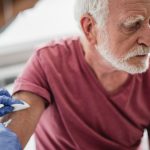
New research reinforces advice to include more whole grains in your diet. A diet heavy in “refined” grains (such as white bread, cookies and muffins) may increase your risk for heart disease and early death, while whole grains may lower it, according to the study. “We encourage people to have moderate consumption of carbohydrates and to have different types of grain, especially whole grain,” said lead researcher Mahshid Dehghan, of the Population Health Research Institute at McMaster University in Hamilton, Ontario, Canada. “Reduction in quantity and improving the quality of carbohydrates is the message of our study,” Dehghan said. Grains like oats, rice, barley and wheat make up about half of diets around the world and as much as 70% in low- and middle-income countries, particularly in Africa and South Asia, the researchers noted. The findings don’t prove that a diet heavy in refined grains causes stroke, heart attacks or other forms of heart disease, only that there seems to be a link. For the study, the research team collected data on more than 137,000 people in 21 countries who were aged 35 to 70, had no history of heart disease and were tracked for more than nine years. People who reported eating 12 ounces of refined grains a day were found to have 27% higher odds of early death and a 33% higher risk… read on > read on >












